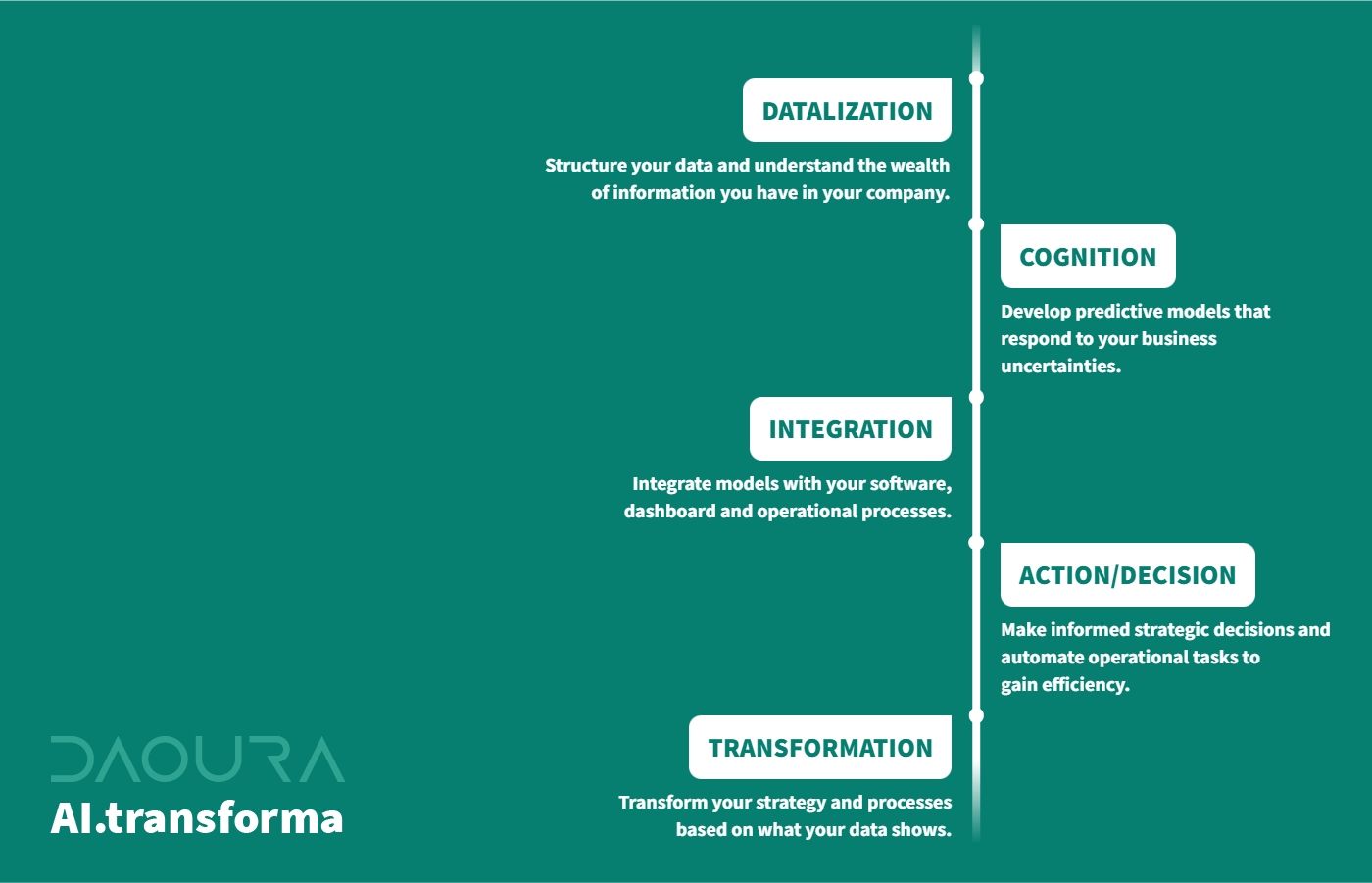Beyond futurism, artificial intelligence (AI) technologies have the power to transform data into certainties so that businesses thrive in an increasingly digital and competitive market.
You probably have a lot of doubts on all that is said about artificial intelligence technologies, what they are for, if they are accessible, if they are ethical or if they are just another one of those cheap “futurisms” that create those science fiction scenarios, provoke fears and bring even more uncertainties. However, companies, regardless of size or market segment, can enjoy the benefits of AI. The fact that your business generates data is the first big step for you to explore the potential of artificial intelligence in your business challenges.
Artificial intelligence is a discipline within the field of computer science that seeks to replicate the cognitive processes of human intelligence in machines, make them perform operational activities more efficiently and support humans in their daily decision-making journeys.
Within this discipline, the field that has evolved the most and has been integrated into so many activities that we carry out today is machine learning. That is, basically, teaching the machine to perform these tasks not algorithmically, obeying a set of rules, but, rather, from a data set that, when analyzed and processed by it, allows the creation of a model (a pattern) of how to reach the final goal of such a task, and make your intelligence more complete as more qualified data is presented in these learning stages.
Just like us humans, who learn from absorbing a large set of data and information, and extract patterns from them to reason, conclude and act on something, machine learning techniques are intended to allow computers to pass by the same process. And this can be done based on two fundamental elements: what you want to teach the machine and the data available to teach it how to perform such a task.
Among the applications that already exist on the market, there are tools based on the same technology that act directly in the personalization of product offerings based on the particular profile of a customer and what they need at the time of purchase, directly increasing the company's revenue potential from a precise offer.
Also, there are platforms that help retail companies to control the entire supply chain of products no longer based on classic supply and demand forecasts, but directly related to what the consumer, the end of the chain, is looking for or can look for in a near future, allowing more accurate inventory planning, and reducing costs with overstock (when there is a surplus of products in stock) or stockout problems (when a product with high demand is not in stock).
The fact is that Artificial Intelligence is not restricted to large companies that have areas of intelligence or research and development. It is accessible to any company that has something fundamental: data. Furthermore, there are already structured ways of this journey of cognitive business transformation, with well-defined stages, such as AI.transforma by Daoura, so that any company can understand its business uncertainties, the data it has available and, from that, incorporate AI in its production processes and effectively transform itself in the era of cognitive technologies, gaining advantages in an increasingly digital and competitive market.

If you still do not use Artificial Intelligence in your company due to lack of knowledge or fear about the topic, know that it is time to break with these myths that AI is for the few, is futuristic, can steal jobs, or any other argument that disqualifies it. Certainly, as an individual, AI is already part of many daily tasks, such as when you do a simple Google search, when you choose the way with least traffic on Waze, or when you listen to a Spotify playlist made from your interactions in the app. So, if your company has data and strategic objectives, why not incorporate the most important technological advance of the last decade and transform your business?
